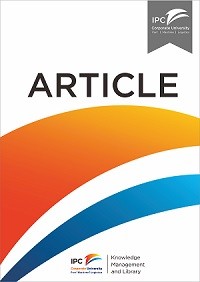Article
An integration of kano’s model and exit-voice theory: a case study
The purpose of this study was to examine overall customer satisfaction associated with medical service quality in Taiwan by integrated Kano’s model and customer satisfaction index model. Another purpose was to confirmed nonlinear and asymmetric relationship of Customer Satisfaction and Quality Performance by the research outcome. By analyzing 1,100 patients or their family members, this study used the structural equation model (SEM) with AMOS software for data analysis. The results show that must-be attributes, one-dimensional attributes and attractive attributes had a direct effect on overall customer satisfaction, Surprisingly, overall customer satisfaction had positively influenced customer loyalty customer satisfaction had negatively influenced customer complaints. The study also found that customer complaints have direct effect on customer loyalty. Importantly, the study found out the must-be attributes, the attractive attributes and one-dimensional attributes increased, the level of overall customer satisfaction also increased. The customer satisfaction positively influences customer loyalty in medical service quality in Taiwan. The findings might reveal new insights for researchers dealing with quality of medical service and for hospital managers who devote resources exclusively to achieving highest possible levels of patient satisfaction.
Ketersediaan
Informasi Detail
- Judul Seri
-
Asian Journal on Quality
- No. Panggil
-
ATC LO YEN a
- Penerbit
- Taiwan : Emerald Insight., 2009
- Deskripsi Fisik
-
19 p.
- Bahasa
-
English
- ISBN/ISSN
-
-
- Klasifikasi
-
LO
- Tipe Isi
-
-
- Tipe Media
-
-
- Tipe Pembawa
-
online resource
- Edisi
-
Vol. 10, No. 2
- Subjek
- Info Detail Spesifik
-
-
- Pernyataan Tanggungjawab
-
Chih-Hung Tsai
Versi lain/terkait
| Judul | Edisi | Bahasa |
|---|---|---|
| Effects of organizational and serviceperson orientation on customer loyalty | Vol. 47 No. 10, 2009 pp. 1489-1513 | en |
Lampiran Berkas
Komentar
Anda harus masuk sebelum memberikan komentar

 Karya Umum
Karya Umum  Filsafat
Filsafat  Agama
Agama  Ilmu-ilmu Sosial
Ilmu-ilmu Sosial  Bahasa
Bahasa  Ilmu-ilmu Murni
Ilmu-ilmu Murni  Ilmu-ilmu Terapan
Ilmu-ilmu Terapan  Kesenian, Hiburan, dan Olahraga
Kesenian, Hiburan, dan Olahraga  Kesusastraan
Kesusastraan  Geografi dan Sejarah
Geografi dan Sejarah